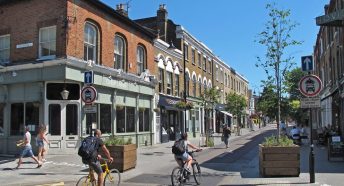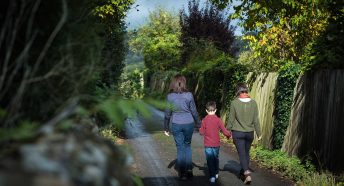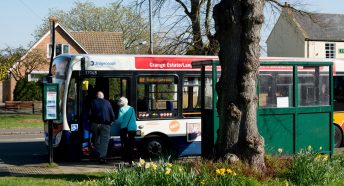It was acceptable in the 80s
Chris Hinchliff, our policy and campaigns officer for working on rural economy and communities, shares the CPRE position on the appalling erosion of bus services to keep us all connected – and explores what a ‘socially necessary’ journey actually means…
After months of avoiding going out and feeling cut off from the people and activities we love, it’s never been clearer how important being ‘connected’ is for all of us.
Good public transport services – regular buses or trains – that keep us moving and going about our daily lives are essential for any community to thrive. But for many rural towns and villages, buses are conspicuous only by their absence.
It might be easy for us to shrug our shoulders and consider that being disconnected is a natural, unavoidable part of rural life. But that would be wrong; this isn’t a problem that came about organically. And we shouldn’t make the mistake of accepting it as such.
It’s a result of the fact that our bus system is based on massively out of date plans dreamt up in the 1980s. We may have escaped the era of shoulder pads and excessive hair spray (mercifully), but when it comes to public transport, many communities outside of our big cities are being failed by the same old tired dogma.

Acceptable in the 80s
Back In 1985, politicians in Westminster came up with a new law. It said that councils should consider what bus services there had to be to allow people to make ‘socially necessary’ journeys in their local area. So far, so good.
But there are at least two massive holes in this cunning plan. Not only did the Westminster government fail to give councils the money they need to buy enough bus services for local residents, they also somehow forgot to define ‘socially necessary’.
This may all seem exceptionally fusty and obscure. After all, what difference do two words in 1980s legislation mean to us today?
The answer is: a lot. Right now, those two words are having a huge impact on towns and villages that have been at the heart of English life for generations.
Siri, define ‘socially necessary’
Do you think it’s important for society that every child can have the opportunity to reach their full potential, and shouldn’t be held back from going to the college or apprenticeship that suits them best? Do you think it’s important for society that people are able to visit their friends and families? Food for thought on these issues now more than ever, following a pandemic that has made these things harder – and we’ve struggled as a result.
We all want to live in a happy, healthy society, where we can each live life to the full – including getting to the places we want and need to go.
But with so many cuts to their budgets, councils are being forced to interpret ‘socially necessary’ bus provision in the cheapest possible way. Many rural communities are being left with the occasional bus to a GP surgery and possibly somewhere to pick up groceries – enough to keep you alive, perhaps, but not to truly live.
At CPRE, we believe that the countryside should be for everyone. That means that anyone should be able to enjoy living in our towns and villages, whether or not they drive a car.
The lack of the rural buses that we’ve been left by the 1980s system is leaving older people cut-off, lonely and isolated, stopping younger reaching the jobs and training they need to get started in life, and forcing hardworking lower-income families into debt and poverty.
It’s time we recognised that the bare minimum is not good enough, and stop accepting it. If we want everyone to be able to play their part in society we need to start investing in reliable, convenient and affordable public transport for every community.
That’s why we are calling on the government to bring rural transport into the 21st century and invest in a bus for every town and every village, every hour.
Want to be part of our major new campaign for better rural bus services? Sign up to our campaign updates and you’ll hear the latest about how you can make your voice heard as we take this cause to Westminster.








